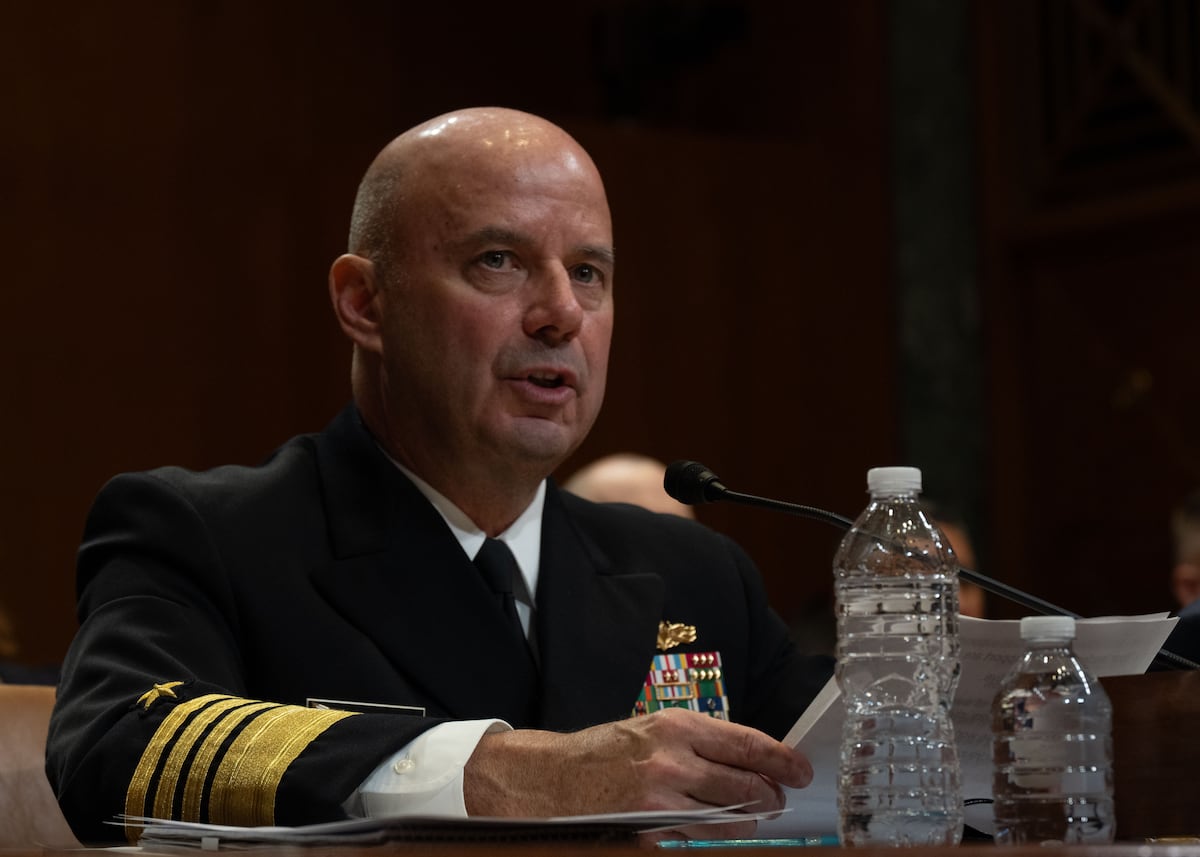The Navy remains years behind in projected ship deliveries and cannot provide firm timelines for improvement, military officials told the Senate Appropriations Subcommittee on Defense on Tuesday.
The hearing saw testimony from Navy Secretary John Phelan, Marine Corps Commandant Gen. Eric Smith and Navy Adm. James Kilby, acting chief of naval operations.
Kilby told lawmakers that the Navy is “laser-focused on China as our most consequential opponent” and noted the service has set an “ambitious goal to make 80% of our ships, submarines and aircraft combat surge-ready by 1 January 2027.”
The Navy’s proposed base budget garnered the most controversy during the hearing — not because of potential over-budgeting, but because committee members were surprised by the lack of funds requested. Their concerns echoed those recently expressed by Sen. Roger Wicker, R-Miss, who said he was deeply disappointed as well as disturbed by the budget request.
“I think at the end of the day, we’re going to need both the mandatory and discretionary funding to operate in fiscal year 26 — so we call it one budget, two bills,” Phelan said in response to budget questions. “We need both in order to operate and meet our objectives.”
The hearing grew somewhat testy at different points as senators from across party lines voiced concerns about the lack of requested funding in the Navy’s base budget and what they perceived as an overreliance on reconciliation bill funding to compensate.
Sen. Susan Collins, R-Maine, said the budget as requested “would keep up on the prior administration’s completely inadequate trajectory in terms of shipbuilding,” and strongly recommended an increase to the base budget.
“Reconciliation was always meant to be just a one-time funding surge,” Collins said.
There was also bipartisan concern regarding the lack of firm timelines for ship deliveries.
In response to questions from Sen. Jack Reed, D–R.I., about schedule delays of the Columbia-class nuclear submarine, Kilby told the committee that submarine production remains stalled.
“We now are on a pace to deliver that sub approximately two years late: March of 2029. We are trying desperately to claw back that schedule,” Kilby said.
Sen. John Kennedy, R-La., leveled the sharpest criticism at those testifying.
“Admiral, in the last two decades, we have doubled the amount of money we’ve given the Navy to build ships,” he said to Kilby. “We’ve actually had fewer ships today because we’ve retired more than we’ve built. Tell me why in 30 seconds.”
“The simple answer, sir, is we were building four DDGs [guided-missile destroyers] per year in the 1990s and we’re building two a year now,” Kilby explained. He told the committee that shipbuilding costs have increased and that production is still lagging.
“We are behind in every ship class [by] different rates, but at least years,” Kilby said.
Kennedy urged those testifying to provide more concrete details to the committee to guarantee funding. He said that it was possible to create more than one reconciliation bill, but planning was needed.
Addressing Phelan, Sen. Lindsey Graham, R-S.C., said, “I don’t know if it’s the right number, and I don’t know how long it’s going to take, but I do know this: China has 400 ships, and by 2030 they’re going to have 435. So we need to get on with it.”
Graham suggested the Navy should be provided funding from outside the budget top line to ensure it meets its shipbuilding priorities.
Zita Ballinger Fletcher previously served as editor of Military History Quarterly and Vietnam magazines and as the historian of the U.S. Drug Enforcement Administration. She holds an M.A. with distinction in military history.
Read the full article here





